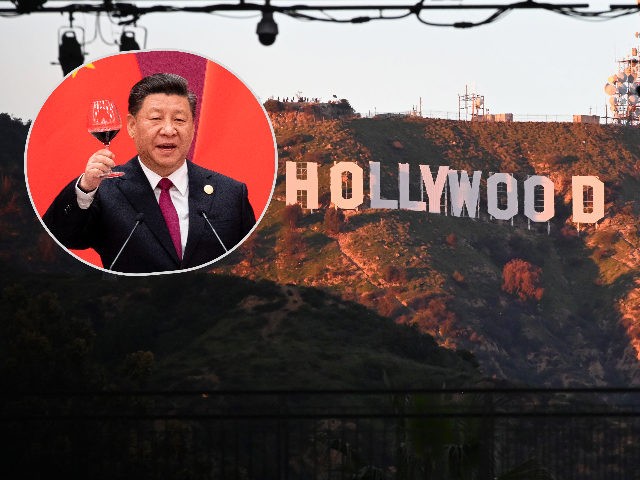China’s state-run Global Times on Saturday celebrated the ascension of the Chinese film industry over Hollywood in 2021, as China’s box office revenue became the highest in the world and reaped most of its income from Chinese productions like The Battle at Lake Changjin, putatively the top movie worldwide last year.
It is worth remembering that no information provided by the Chinese Communist government should be taken at face value, and no American film could hope for the kind of support Beijing provided to The Battle at Lake Changjin, a historically dubious Korean War epic presented as mandatory viewing to much of the Chinese public.
China saw an opportunity to use the Wuhan coronavirus pandemic to create a narrative of box office superiority in 2020 and 2021. The Global Times flogged that talking point with gusto:
The Battle at Lake Changjin collected a record 5.772 billion yuan in China’s box office market, which is also a new record high as the highest-grossing film in Chinese history. The film is set during the War to Resist US Aggression and Aid Korea (1950-53) and depicts the Chinese People’s Volunteers soldiers’ brave fight in a key campaign at Lake Changjin, or Chosin Reservoir, during freezing temperatures.
China is expected to account for 34 percent of global box office revenue, compared to just over 28 percent in 2020, according to Gower Street Analytics projections. The US is estimated to take the second rank with a likely 22 percent share.
The year 2021 marked the second year that China beat the US to become the world’s largest box office market, a result caused by the two countries’ vastly different responses to the COVID-19 pandemic, according to media reports.
Business Insider noted on Monday that China banned most of the big American films from late 2021, including the big superhero movies – another flex of state muscle that helped create China’s “king of the box office” narrative.
The current top movie in the world, and one of the biggest releases in Hollywood history, is Spider-Man: No Way Home, and it still has not debuted in China. Even without Chinese ticket sales, Spider-Man’s current worldwide gross of $1.37 billion dwarfs The Battle at Lake Changjin.

Tom Holland as Spider‑Man and Zendaya (Michelle “MJ” Jones) in Marvel’s Spider-Man: No Way Home. (Columbia Pictures/Marvel Studios)
Of course, not every movie can perform like No Way Home, and it remains to be seen if Hollywood can return to its pre-pandemic audience numbers after the pandemic debacle.
Business Insider’s panel of industry observers suggested China is determined to keep blocking Hollywood movies and developing its own film industry, in line with a new “five-year plan” developed in Beijing to make China a “strong cultural power” under the Communist Party’s “total leadership.” The plan envisions pushing Chinese films, and Communist ideology, into worldwide movie theaters.
Variety, on the other hand, quoted some analysts who saw China “decoupling from the broader global film industry as a whole as the country turns inward under President [sic] Xi Jinping.”
Some thought China might be using the pandemic as an opportunity to firewall its domestic theater industry from Western influences before making a big push to move its own film product overseas – essentially building a defensive wall against American films as stage one, before launching offensive cultural operations in earnest.
Other analysts thought China is preparing for a complete cultural lockdown, possibly triggered by a great-power conflict with the United States. From this perspective, triumphalist state media editorials about the success of The Battle at Lake Changjin are a way of bracing the Chinese public for a rapidly-approaching day in which only Chinese films play at their theaters.
Filmmakers told Variety it was obvious in retrospect that many of the joint film projects lavishly funded by China over the past decade were largely intended to help Chinese filmmakers steal the secrets of making big Hollywood blockbusters.
“I think about every moment of my career with China, and it’s so obvious now,” said former studio head Chris Fenton. “We could sell them fish as long as we taught them how to fish.”
“They wanted to create imitators and an industry that can compete with us on a world-class level. Now that they’ve done that, they have no motivation to allow any of our movies in. We need to stop trying to keep the status quo because the status quo is gone,” Fenton said.


COMMENTS
Please let us know if you're having issues with commenting.